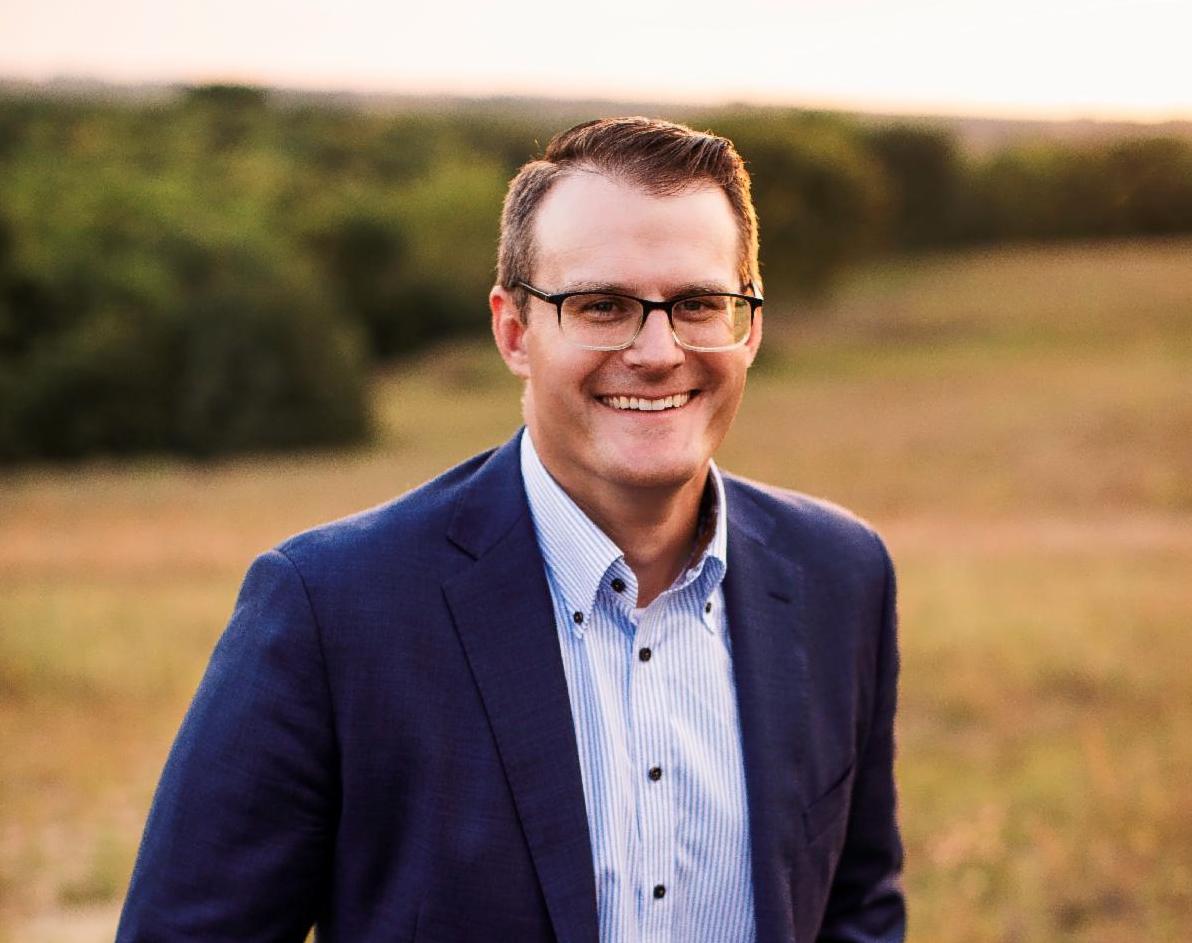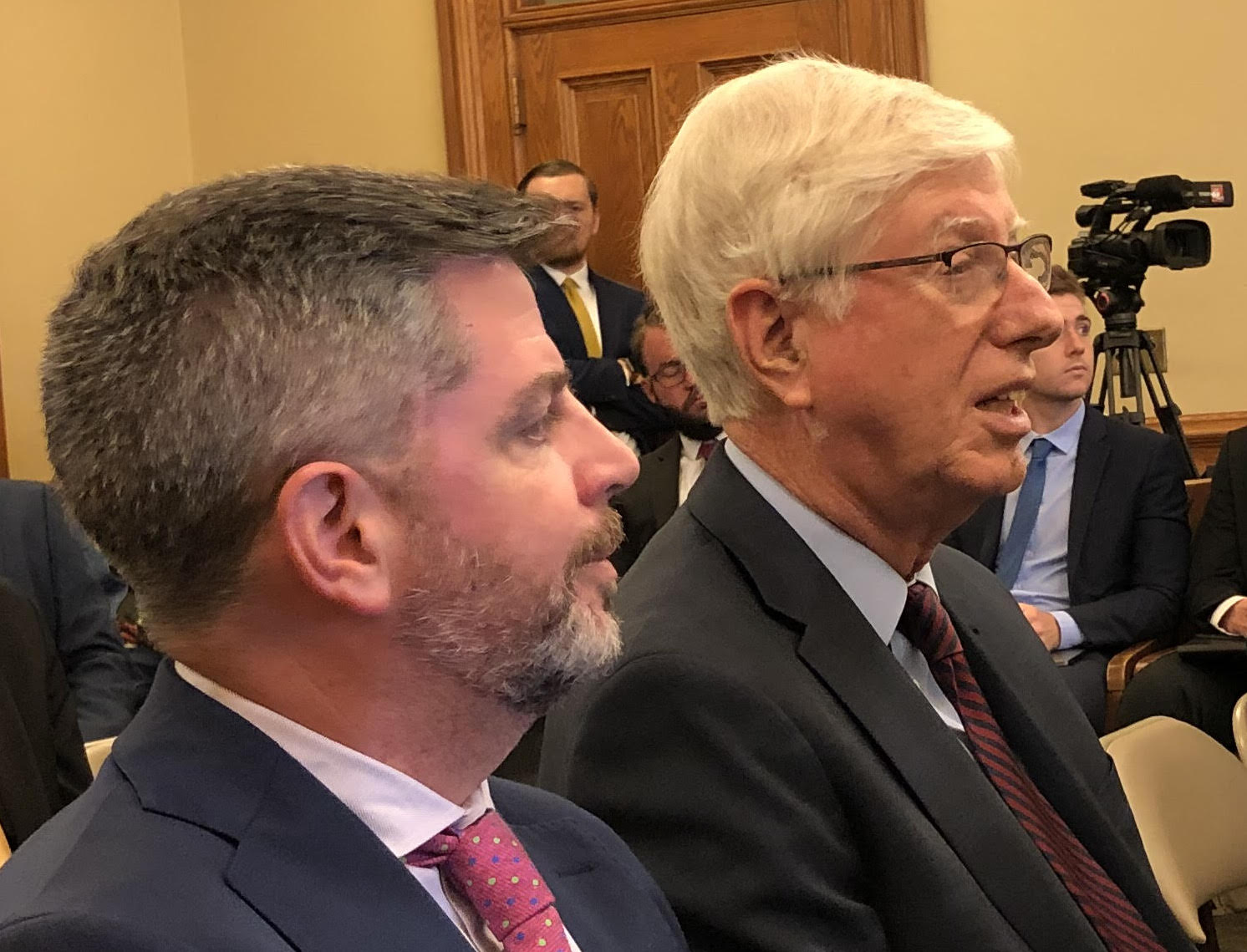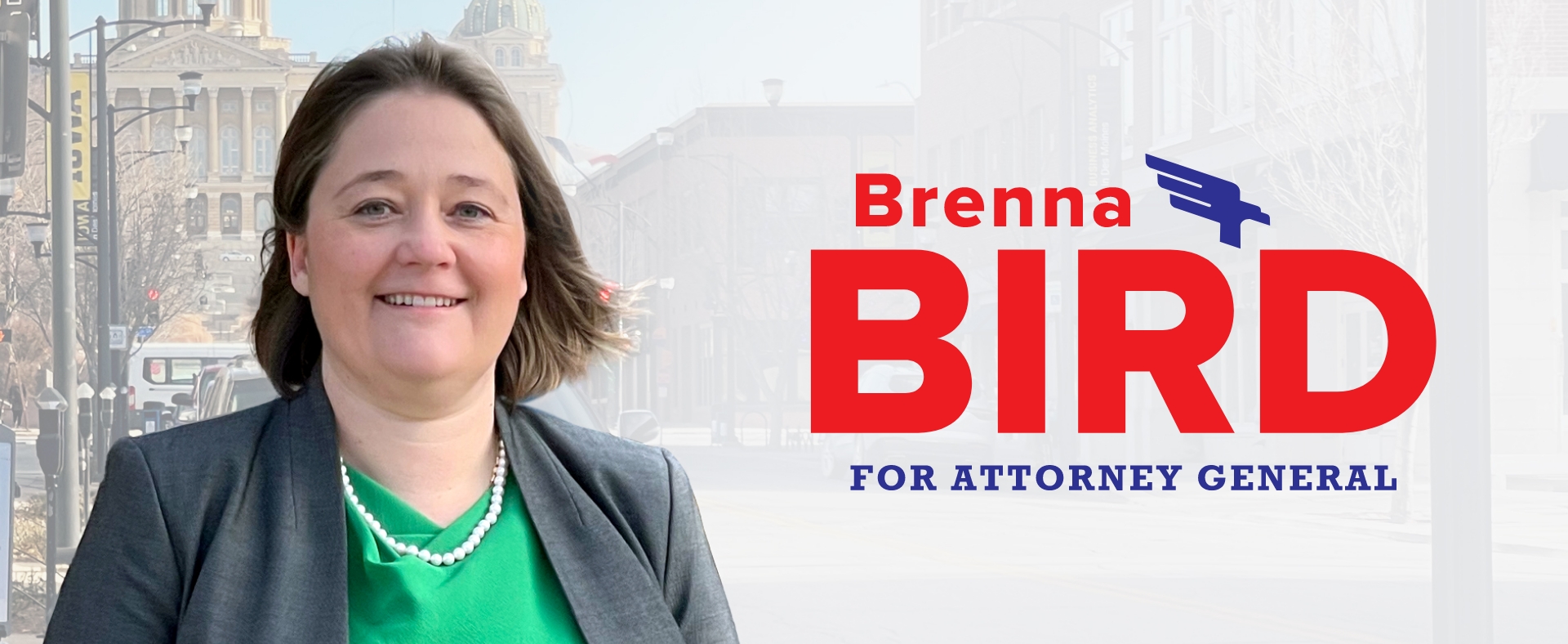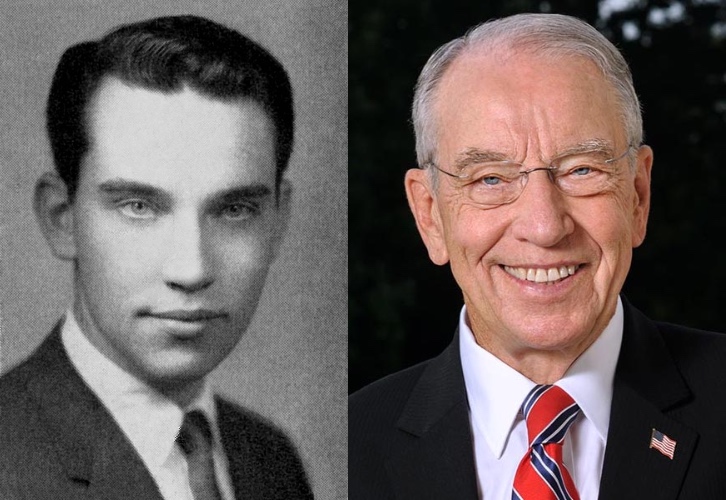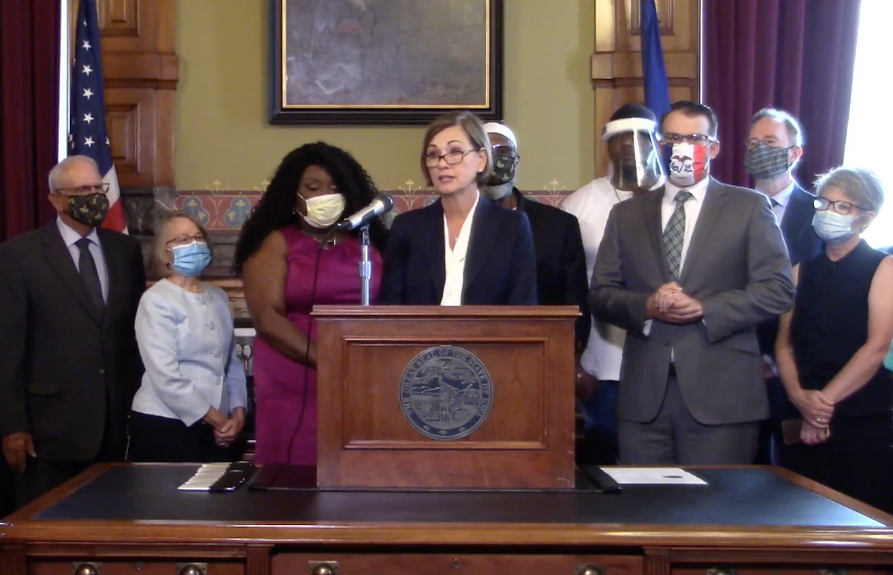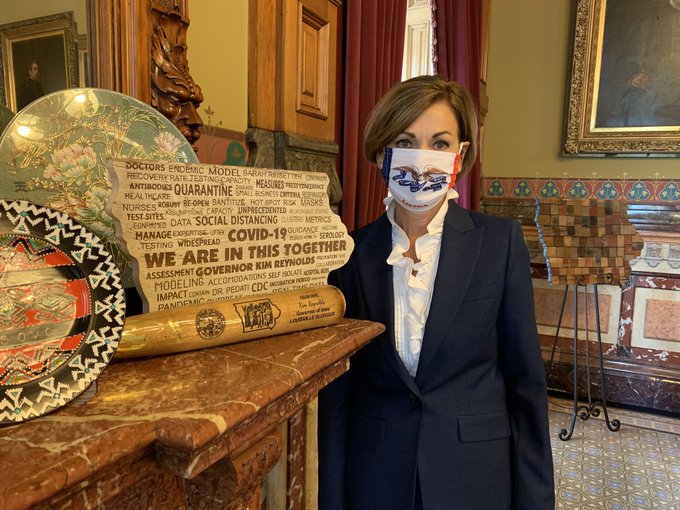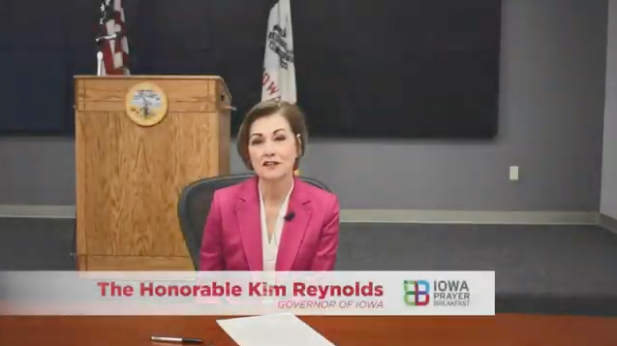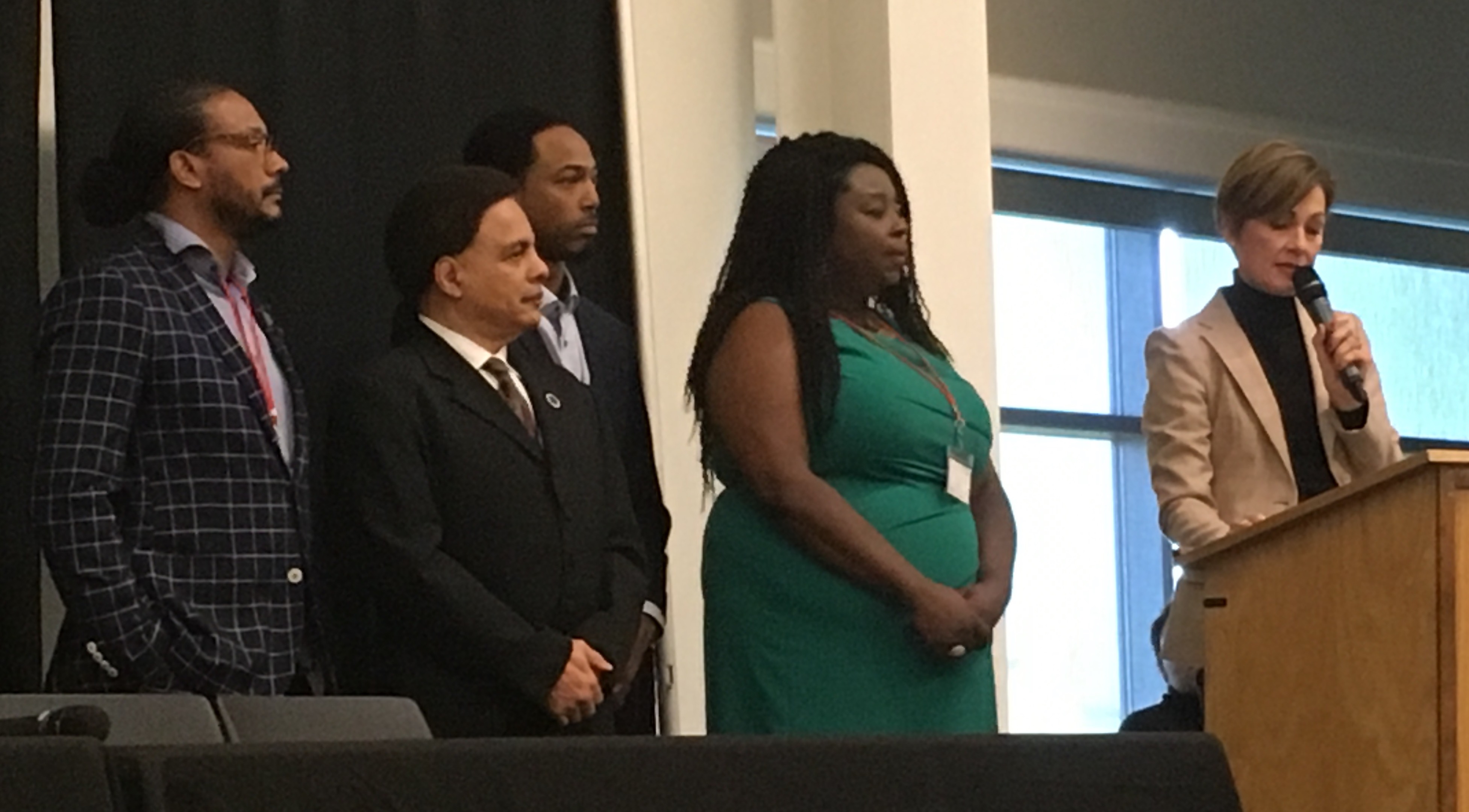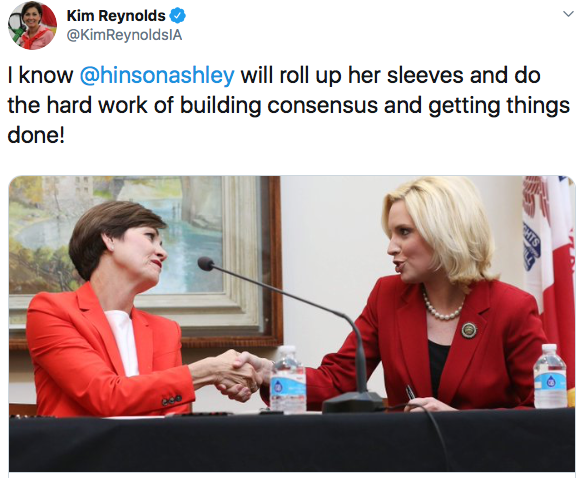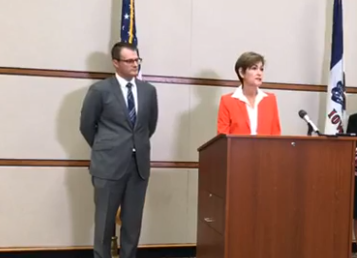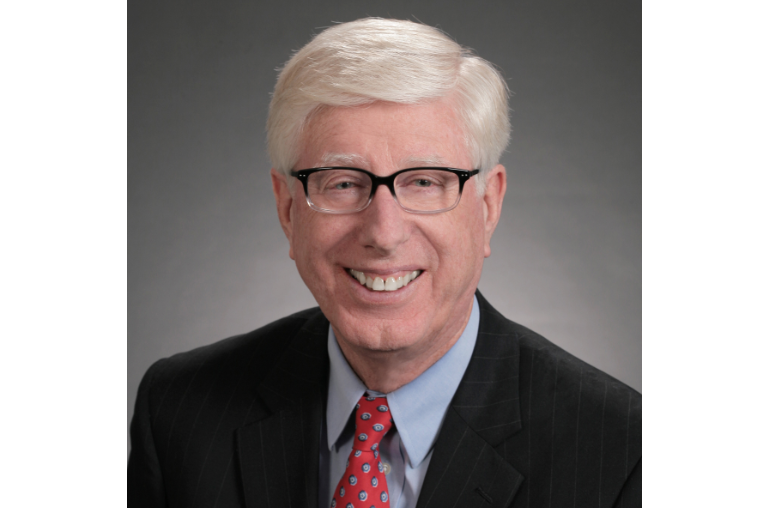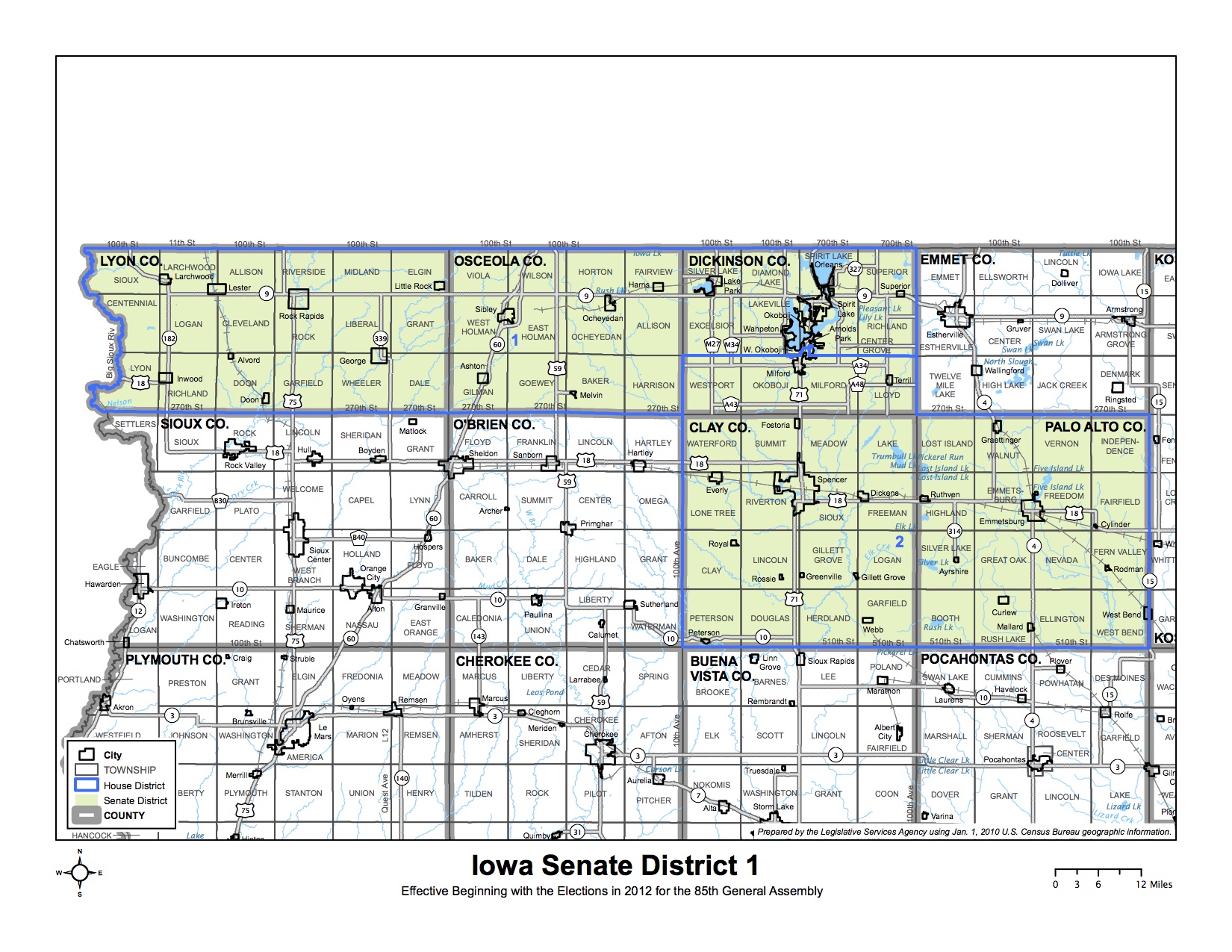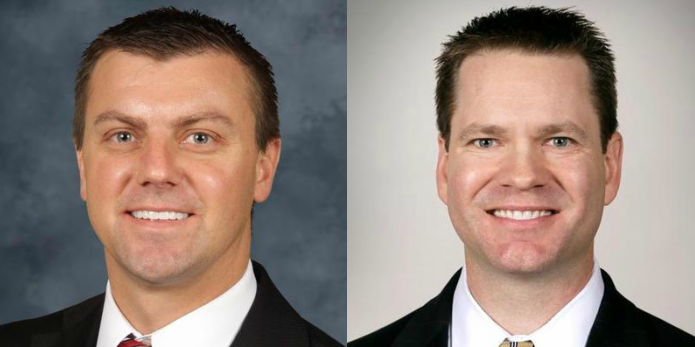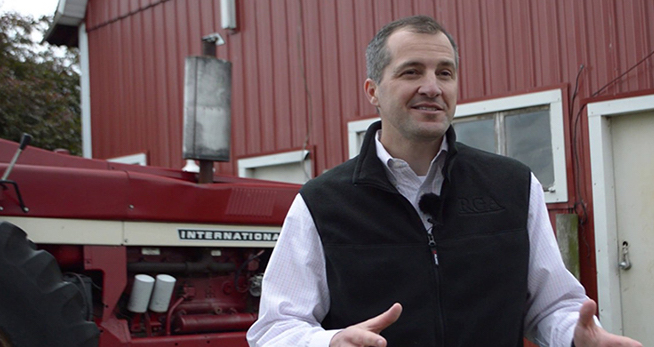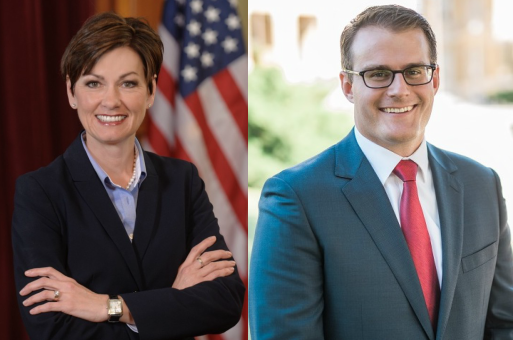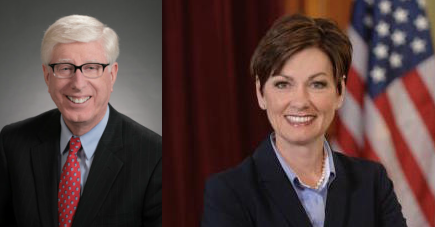Iowa Attorney General Tom Miller announced today that he believes Lieutenant Governor Kim Reynolds will become the governor, and not merely “acting governor,” once Governor Terry Branstad resigns to become U.S. ambassador to China. However, in the same 23-page opinion (enclosed in full below), Miller determined that under Iowa’s constitution, Reynolds will not have the authority to appoint a new lieutenant governor once she is sworn in.
Reynolds has been vetting candidates to take her place for months, as staff in the governor’s office insisted she will have the right to appoint a new lieutenant governor. Miller’s office had indicated in December that the attorney general agreed with the Branstad administration’s view on the coming transfer of power, despite language in the Iowa Constitution stating that the governor’s powers “shall devolve upon the Lieutenant Governor” in the event of a vacancy, and calling for the Iowa Senate president to be next in line if the lieutenant governor proves incapable of “performing the duties pertaining to the office of governor.” At the time, Miller provided no legal analysis, but his office released a 1923 Iowa attorney general’s opinion, which you can read here.
Three months ago, independent State Senator David Johnson exercised his right to request a formal opinion from Miller on nine questions about the succession. He asked Miller to produce the opinion “on an expedited basis” and specifically asked him not to “simply rely on the precedent of a predecessor’s 1923 opinion.”
Staff in the Attorney General’s office, led by Solicitor General Jeffrey Thompson, conducted “extensive legal and historical research” before reaching the conclusions Miller characterized as a “split decision” during today’s press conference.
Miller noted the precedent for using the title of “governor” when previous Iowa lieutenant governors exercised the governor’s powers following a vacancy. He also noted that when vice presidents have assumed the presidency, we have called those men “president” rather than “acting president.”
Miller said five factors pointed toward the conclusion that Reynolds does not have the authority to appoint a new lieutenant governor. An important one for him was language in Article IV, Section 19 of the Iowa Constitution, which spells out the succession of power from the governor to the lieutenant governor to the president of the Senate. (I’ve enclosed that passage below.) A state constitutional amendment in 1988, which provided for the lieutenant governor to be elected on a ticket with the governor, did not change the wording about the line of succession. Furthermore, Miller found, the historical record shows “The framers [of Iowa’s constitution] intended that those in the gubernatorial line of succession be elected.”
Miller also pointed to historical practice when the U.S. Constitution’s succession language mirrored the current wording of Iowa’s constitution (saying the president’s powers “shall devolve on the Vice President”). Before the 25th Amendment to the U.S. Constitution was adopted in 1967, none of the eight vice presidents who became the head of state following the death of a sitting president attempted to appoint a new vice president for the remainder of the term.
Speaking to reporters today, Miller said that as a matter of policy, he supports the idea of the new governor having the power to appoint a new lieutenant governor. But he maintained the Iowa Constitution would have to be amended to provide for that process.
Asked what would happen if the governor’s office disagrees with his legal analysis, Miller said he expects them to follow his opinion and repeatedly expressed hope that they will do so. If Reynolds proceeds with appointing a new lieutenant governor, her action “may or may not be challenged” in court. Responding to a follow-up question, Miller clarified that the Attorney General’s Office would not file that lawsuit, repeating that he hopes Reynolds will not take that course.
I am seeking feedback from attorneys on whether an ordinary Iowa voter would have standing to go to court if Reynolds disregards Miller’s conclusions about what the constitution allows. Iowa Senate President Jack Whitver would clearly have standing, since a new lieutenant governor would take his place in the line of succession. But the loyal Republican Whitver certainly would not object.
Front-runners for the lieutenant governor spot in the Reynolds administration are rumored to include State Representative Zach Nunn and State Public Defender Adam Gregg.
UPDATE: Added early reaction from the governor’s office and other political figures below. Reynolds sounds intent on ignoring Miller’s opinion.
Continue Reading...


